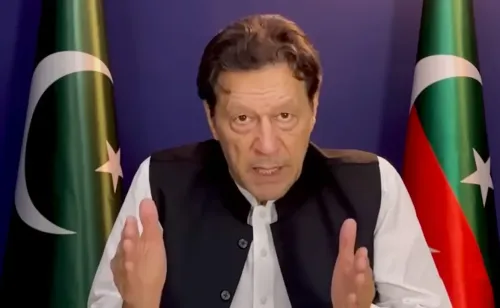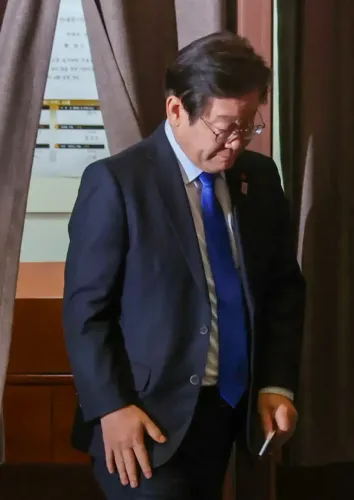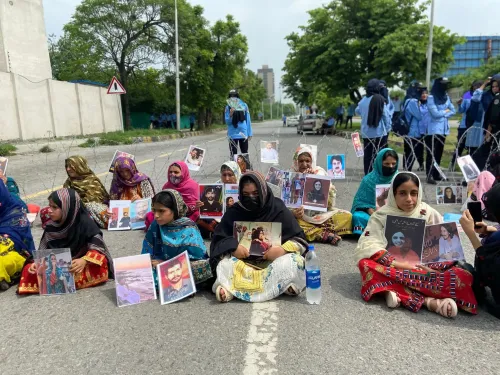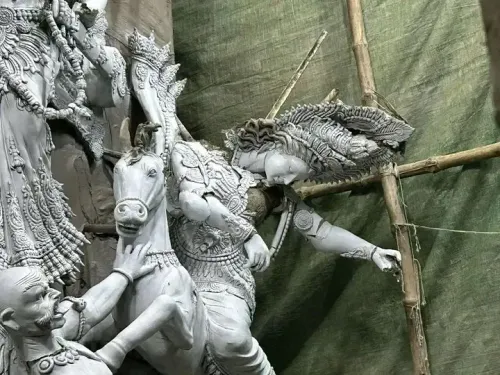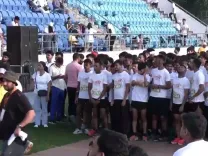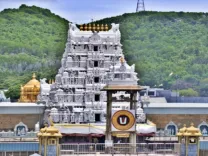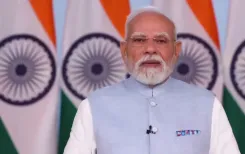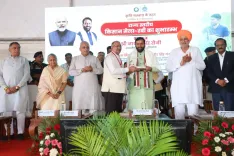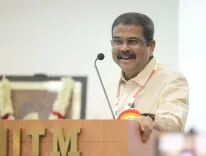Is Pakistan Engaging in State Repression Against Baloch Protesters?
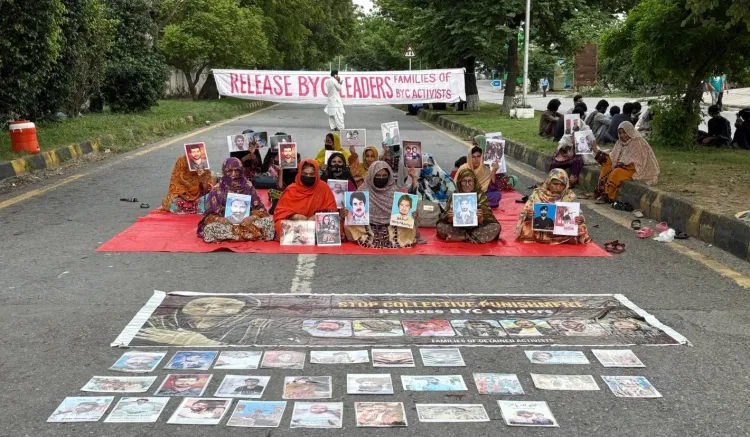
Synopsis
Key Takeaways
- Baloch Yakjehti Committee continues protests for rights
- Accusations of state repression by Pakistani authorities
- Demands include release of detained leaders and ending enforced disappearances
- Surveillance and racial profiling reported against protesters
- International community urged to support Baloch rights
Islamabad, July 31 (NationPress) The Baloch Yakjehti Committee (BYC) has accused Pakistani authorities of engaging in systematic state repression against Baloch demonstrators who have been conducting a sit-in outside the National Press Club in Islamabad for the past 16 days. The BYC reported that the protesters are subjected to daily surveillance and racial profiling, with intelligence agents frequently filming students and male protesters.
As per the BYC's statement, the demonstrators are advocating for the release of detained BYC leaders and a halt to the ongoing enforced disappearances in Balochistan. The BYC pointed out that the road leading to the Press Club is obstructed with buses and barbed wire, and criticized the authorities for forcing vulnerable individuals, including elderly women and children, to sit in direct sunlight.
In a recent post on X, BYC stated, "Day 16 — Islamabad Sit-In: For the 16th consecutive day, families of forcibly disappeared individuals and detained BYC leaders are persisting in their peaceful protest outside the National Press Club, Islamabad. Their demands remain clear: release the detained BYC leaders and cease enforced disappearances in Balochistan. Instead of being heard, they face calculated state repression. The road to the Press Club remains sealed, isolated from public attention."
Despite the extreme heat, authorities are denying tents or shade, forcing the elderly and children to endure unbearable conditions. Several individuals have reportedly fainted from heat exhaustion. Daily surveillance and racial profiling continue, with intelligence personnel frequently filming students and male participants. Many of these individuals do not represent any media outlet and partake in harassment and intimidation. Families, particularly women, are followed home, photographed, and monitored. Nevertheless, the protesting families remain steadfast. As they continue their sit-in, we urge journalists, civil society members, students, lawyers, and conscientious citizens to stand in solidarity with them and raise their voices against this injustice," it added.
Meanwhile, Paank, the Baloch National Movement's Human Rights Department, condemned the ongoing persecution of Baloch individuals by Pakistani forces amidst the surge of enforced disappearances in the region.
Paank cited a case involving an individual named Saddam Hussain Kurd, who was forcibly disappeared by Pakistani forces on the night of July 18-19 from his residence in Killi Habib Faizabad, Quetta. Another Baloch civilian, Saleh Naeem, a resident of Pulabad in the Kech district, also fell victim to enforced disappearance on July 28.
"These disappearances are part of a systematic policy targeting Baloch civilians and youth," Paank remarked.
The human rights organization also criticized the arbitrary detention and racial profiling of numerous Baloch students by the Islamabad Police. Paank stated that the detention of these students, who were taken to the Secretariat Police Station and interrogated over supposed ties to banned groups, constitutes a blatant act of ethnic targeting and a severe violation of their fundamental rights, as guaranteed by Pakistan’s Constitution and international human rights law. Such actions undermine principles of equality, justice, and freedom of expression, further aggravating the systemic marginalization faced by the Baloch community.
"We are deeply concerned about reports that human rights attorney Imaan Zainab Mazari-Hazir, a prominent advocate for Baloch rights, was present at the police station and may have faced detention or harassment. Additionally, others attempting to access the station were reportedly mistreated, showcasing the authorities' efforts to suppress dissent and silence those who challenge these injustices," Paank asserted.
Paank has called for the immediate release of all detained students and an end to the unlawful practice of racial profiling. The organization urged Pakistani authorities to honor their obligations under the International Covenant on Civil and Political Rights and the Convention against Torture, ensuring accountability for these violations.

